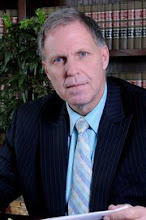FORT WORTH - Fort Worth police have taken action to halt a loophole that allowed obvious drunk drivers of the hook.
While shocking, there have been reports of drivers in Fort Worth that got so drunk they actually passed out behind the wheel, yet were never charged with a DWI.
Police say policy has now been changed to close the loophole that was big enough to drive through; but prior to the change, there was report after report of people doing just that.
According to police reports, a man was found sitting in traffic on an Interstate 35 service road with a strong "odor of alcohol." The report also said the man couldn't "keep his balance" and "didn't know where he was."
Another driver was found stopped on Interstate 35 and appeared "intoxicated and asleep behind the wheel."
Motorists on Interstate 30 reported a man sitting in his truck that was half on the shoulder and half in the fast lane. Police said he had "a strong odor of alcohol," "slurred speech" and "swayed as he attempted to stand."
Then there is the case of the driver discovered slumped behind the wheel on Meadowbrook Drive, "unresponsive" and with a "strong odor of an alcoholic beverage." An officer reported the man "could barely walk and nearly fell down several times."
All the above incidents appear in Fort Worth police reports from this year. Some reports involve drivers apparently so drunk they passed out after stopping on the roadway.
But there is one more thing the drivers have in common, not one of them got charged with DWI.
"It doesn't matter if they're awake, asleep or passed out; it doesn't matter," said Richard Alpert, the assistant district attorney for Tarrant County
Alpert said he didn't realize that sleeping or unconscious drunk drivers weren't getting DWIs until News 8 brought it to his attention.
"It's a recipe for fatality," he said. "It's a recipe for death."
But as in all recipes, little things can make a big difference.
Fort Worth police said their general orders for a DWI arrest require some proof the suspect is actually operating the vehicle. Fort Worth police traffic supervisor Sgt. Rodney Bangs said the decision on arresting for DWI is not black and white.
"It hinges on the definition of operating," he said. "In the past it was construed to mean if the vehicle was running in gear and the person had a foot on the brake, therefore they were controlling the vehicle, keeping it from moving."
So, instead of a DWI arrest, some of the drunkest drivers in Fort Worth have simply been ticketed for public intoxication and hauled to jail to sleep it off.
Alpert said a DWI is a much more serious charge.
"It's the difference between a fine only offense and an offense that has a mandatory two-year, no-release probation with programs, fines and tools that can prevent them from driving while intoxicated," he said.
With a DWI charge, a judge can order treatment and require an interlock device on the car. With a public intoxication charge, the defendant pays a fine and it's over. The case also can't be used to increase penalties for future drunk driving arrests.
To close the loophole, the DA's office issued a memo stating that DWIs cover a driver "seated in a stationary, yet running vehicle positioned in a traffic lane."
However, there is still the question of what about those cars found running or drivers that manages to pull off into a parking lot or restaurant drive thru?
Alpert said those cases are more difficult, but can be prosecuted.
Sgt. Bangs said the change should lead to more DWI arrests.
"This enhances our ability to make DWI arrests," he said.
Officers will still have to make tough judgment calls in the field. If they choose to charge a DWI, they know it will take them off the streets for hours to process the case. For that reason, Alpert said he will not blame an officer who gives a ticket for public intoxication because he thinks a DWI won't stick.
http://www.sloanelaw.com
Monday, December 15, 2008
Subscribe to:
Post Comments (Atom)


No comments:
Post a Comment